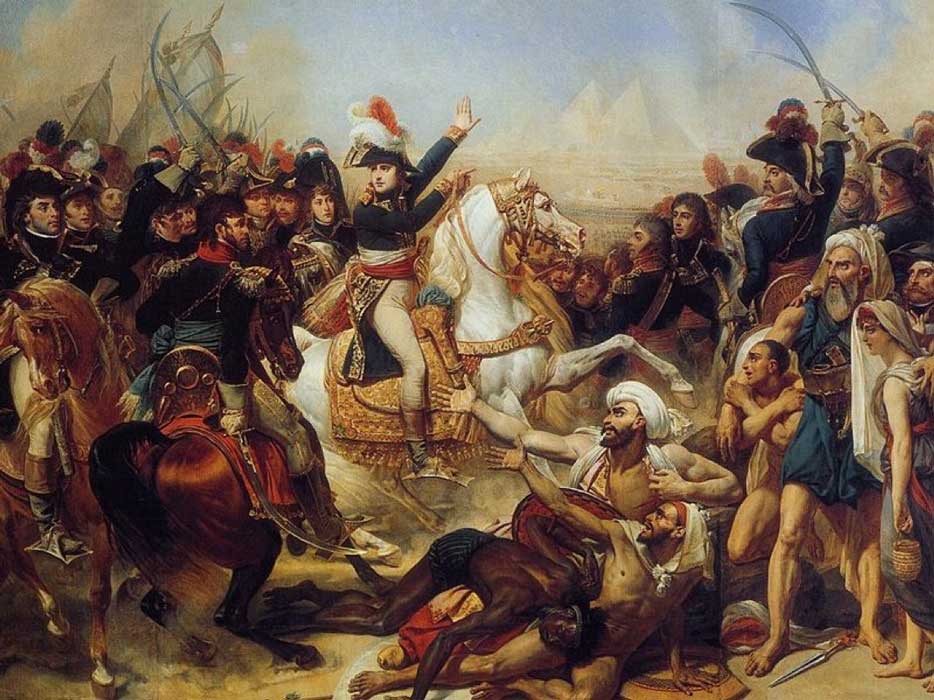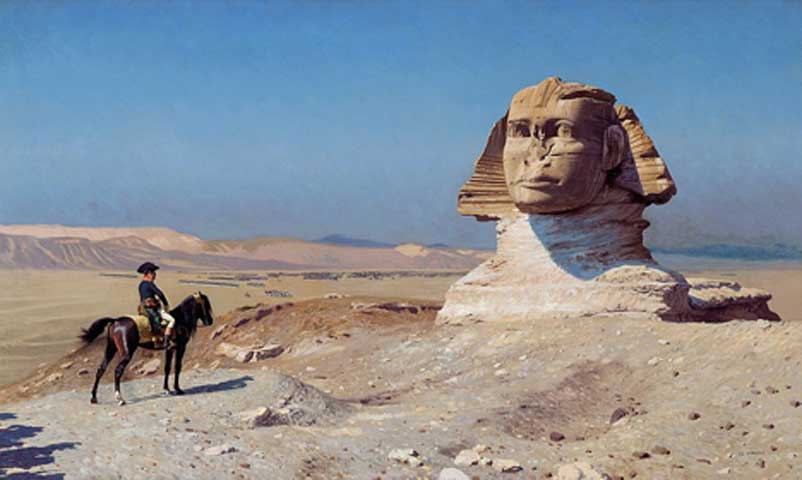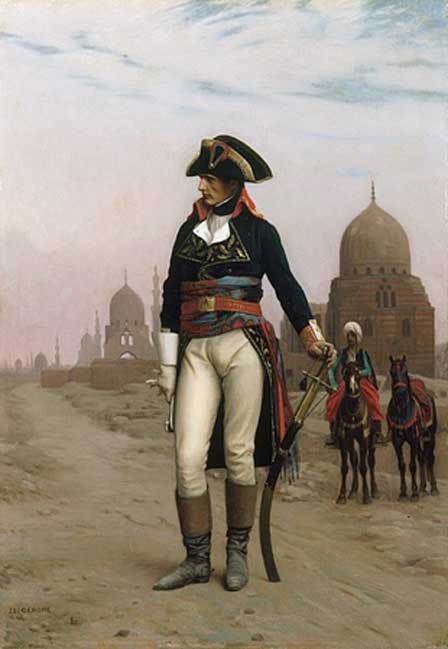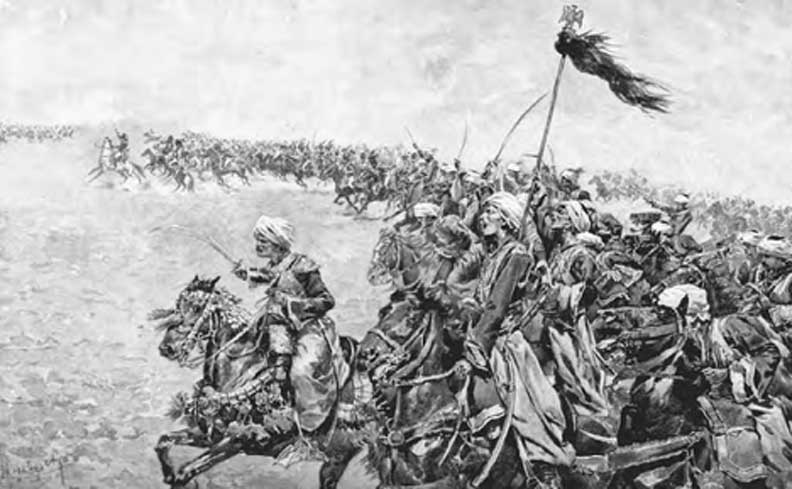
The Napoleonic Expedition to Egypt: Hasty End of a Powerful Dream – Part II
Even though Napoleon Bonaparte had tasted a series of successes within weeks of setting foot in Egypt, including an important victory against the dreaded Mamluks, his plan to conquer the entire country was thwarted often by an English naval genius, Rear Admiral Horatio Nelson, who seemed to follow him like a shadow. Soon, with his troops in low spirits due to the constant battles and the punishing weather, defeat stared the French in the face. Napoleon did the unthinkable – he quietly left for France. Tipu Sultan, his friend in India, died battling the British a few days before the Commander decided to withdraw from the Egyptian Expedition.

Bonaparte Before the Sphinx, (ca. 1868) by Jean-Léon Gérôme, Hearst Castle. (Public Domain)
Finally on Egyptian Shores!
Napoleon Bonaparte made the most of his success in eluding the British Royal Navy for 13 days by disembarking in Alexandria on 1 July 1798. The landing spot, though unplanned, was symbolic, because Alexandria was regarded as one of the most significant hubs of Hellenistic civilization and had functioned as the Egyptian capital of the Ptolemy, Roman, and Byzantine empires for nearly a thousand years until the Muslim conquest in 641 AD. Ever silver-tongued and in the fashion of a statesman, Napoleon addressed his troops from aboard his ship L’Orient before setting foot on Egyptian soil. He exhorted them with these invigorating words that led to the capture of Alexandria: “The peoples we will be living alongside are Muslims; their first article of faith is ‘There is no other god but God, and Mahomet is his prophet’. Do not contradict them; treat them as you treated the Jews, the Italians; respect their muftis and their imams, as you respected their rabbis and bishops. Have the same tolerance for the ceremonies prescribed by the Quran, for their mosques, as you had for the convents, for the synagogues, for the religion of Moses and that of Jesus Christ. The Roman legions used to protect all religions. You will here find different customs to those of Europe, you must get accustomed to them. The people among whom we are going treat women differently to us; but in every country whoever violates one is a monster. Pillaging only enriches a small number of men; it dishonors us, it destroys our resources; it makes enemies of the people who it is in our interest to have as our friends. The first city we will encounter was built by Alexander [the Great]. We shall find at every step great remains worthy of exciting French emulation.”

General Napoleon Bonaparte in Cairo by Jean-Léon Gérôme (1824–1904). Princeton University Art Museum. (Public Domain)
Following the defeat of the Mamluk Sultanate at their hands, from 1517, Egypt had been designated an Ottoman province or Eyalet. But by the time of Napoleon’s arrival, the country had fallen out of direct Ottoman control and chaos reigned on the streets. This ugly situation was magnified by disarray in the ranks of the ruling Mamluk elite. Abreast of the goings-on, Napoleon who wished to walk in the footsteps of Alexander the Great, made overtures to the local population in the hope that, like his idol, he would be hailed as a liberator of the people from Ottoman and Mamluk oppression. Napoleon also issued a proclamation to the Muslim inhabitants of Alexandria that was equally stirring in its eloquence and was intended to appeal to, among other things, their religious sentiments: “For too long the beys who govern Egypt have insulted the French nation and covered their traders in slanders. The hour of their punishment has come. For too long this horde of slaves, bought in the Caucasus and Georgia, have tyrannized the most beautiful part of the world; but God, on whom all depends, has ordained that their empire shall end. People of Egypt, they have told you that I come to destroy your religion, but do not believe it; [tell them] in reply [that] I come to restore your rights, punish the usurpers and that I respect God, his prophet and the Quran more than the Mamluks. Tell them that all men are equal before God; wisdom, talents, virtues are the only things to make one man different from another... Is there a more beautiful land?

Charge of the Mamluks during the Battle of the Pyramids by Felician Myrbach. An elite body of cavalry whom the French encountered during their campaign in Egypt in 1798, the Mamluks could trace their lineage of service to the Ottomans back to the mid-13th century. (Public Domain)




